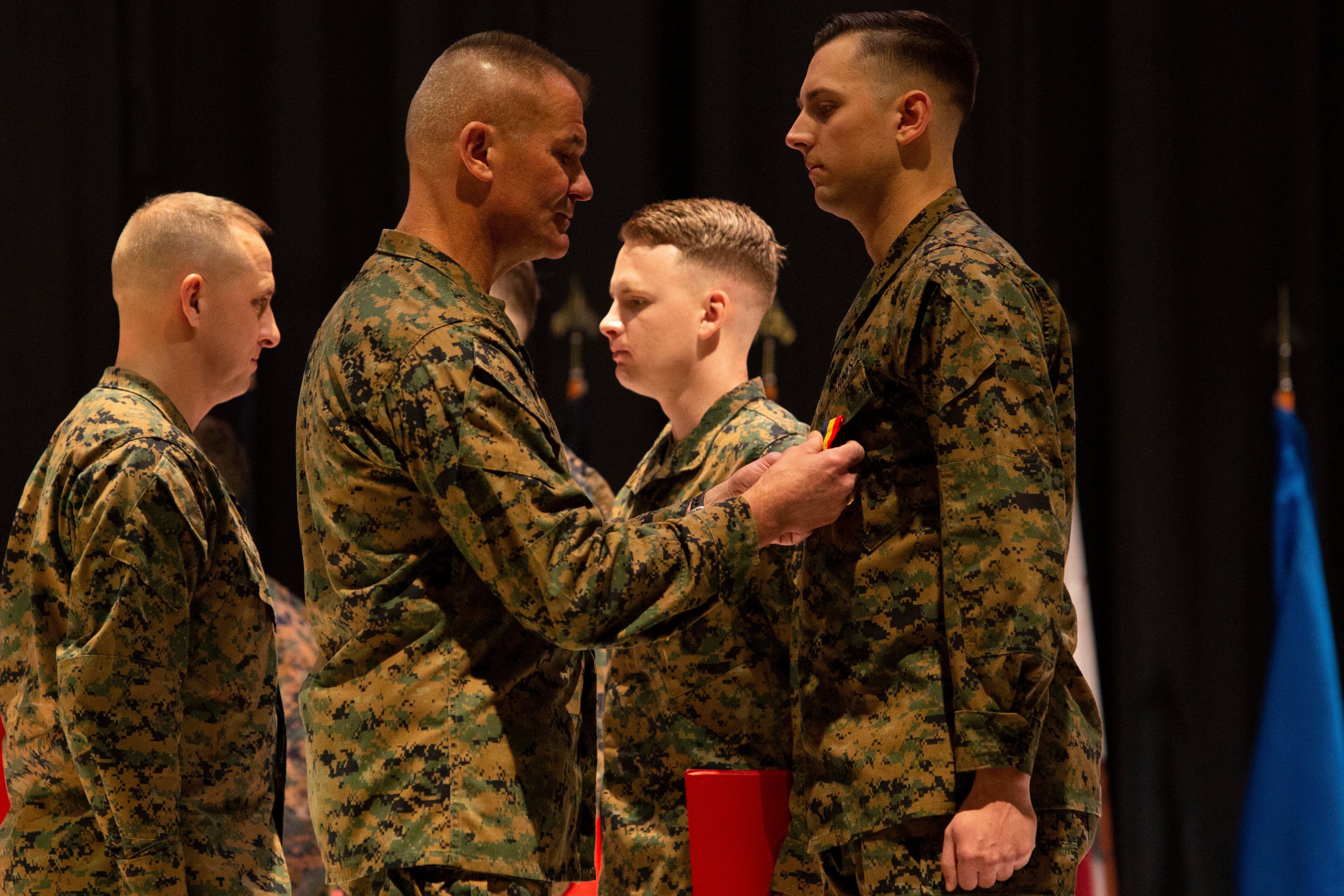On the morning of Dec. 8, 2018, Marine Maj. William Easter was getting ready for a physical fitness run along the Sunabe Seawall and the East China Sea in Okinawa, Japan, when he suddenly heard calls for help.
A local man had swam to shore and desperately was looking for someone to rescue his pregnant wife, stranded in the ocean where the waves started to break.
Easter quickly directed two other service members to call for help and a flotation device. With a life ring, he rushed 300 meters into the water, first attempting to bring the woman to shore, and then fighting up to 35 mph winds and 10-foot high swells for nearly an hour waiting for rescue boats to arrive.
For his swift action and disregard for personal safety, Easter, the theater security cooperation officer for the III Marine Expeditionary Force in Okinawa, Japan, received a letter of appreciation from the Chatan, Okinawa, Japan, mayor in January 2019. He was then bestowed the Navy and Marine Corps Medal, the Corps’ highest award for noncombat heroism, on Feb. 14.
RELATED

Easter’s first reaction to the desperate calls from the exhausted husband ― separated from his wife by a rip current after bad weather quickly approached ― was to help the husband search for help, he told Marine Corps Times in an email Thursday.
But the Marine quickly realized he was the only one capable and willing to rescue the pregnant woman from drowning, he said.
“I didn’t know what the victim’s state was, but I felt like I had a moral obligation to do something," Easter said in the email. “The water was dangerous, but I was confident in my skills and training."
The Marine first attempted to get ashore, but when the woman was overcome by exhaustion and could no longer help him swim Easter focused on keeping her afloat until rescuers arrived, according to the Navy and Marine Corps Medal citation.
After staying afloat for almost an hour, the first rescue craft arrived. Because of the choppy sea and the size of the craft the boat capsized, sending Easter and the pregnant woman back in the water until a larger boat finally arrived and rescued them.
“By his courageous and prompt actions in the face of great personal risk, Major Easter reflected great credit upon himself and upheld the highest traditions of the Marine Corps,” his award citation said.
Easter said he does not see himself as a hero ― just an ordinary Marine who did what was needed.
“I am just a conduit for the training that my parents and my nation have invested in me," he said in the email to Marine Corps Times. “Any member of the military or public safety service would have done the same."




